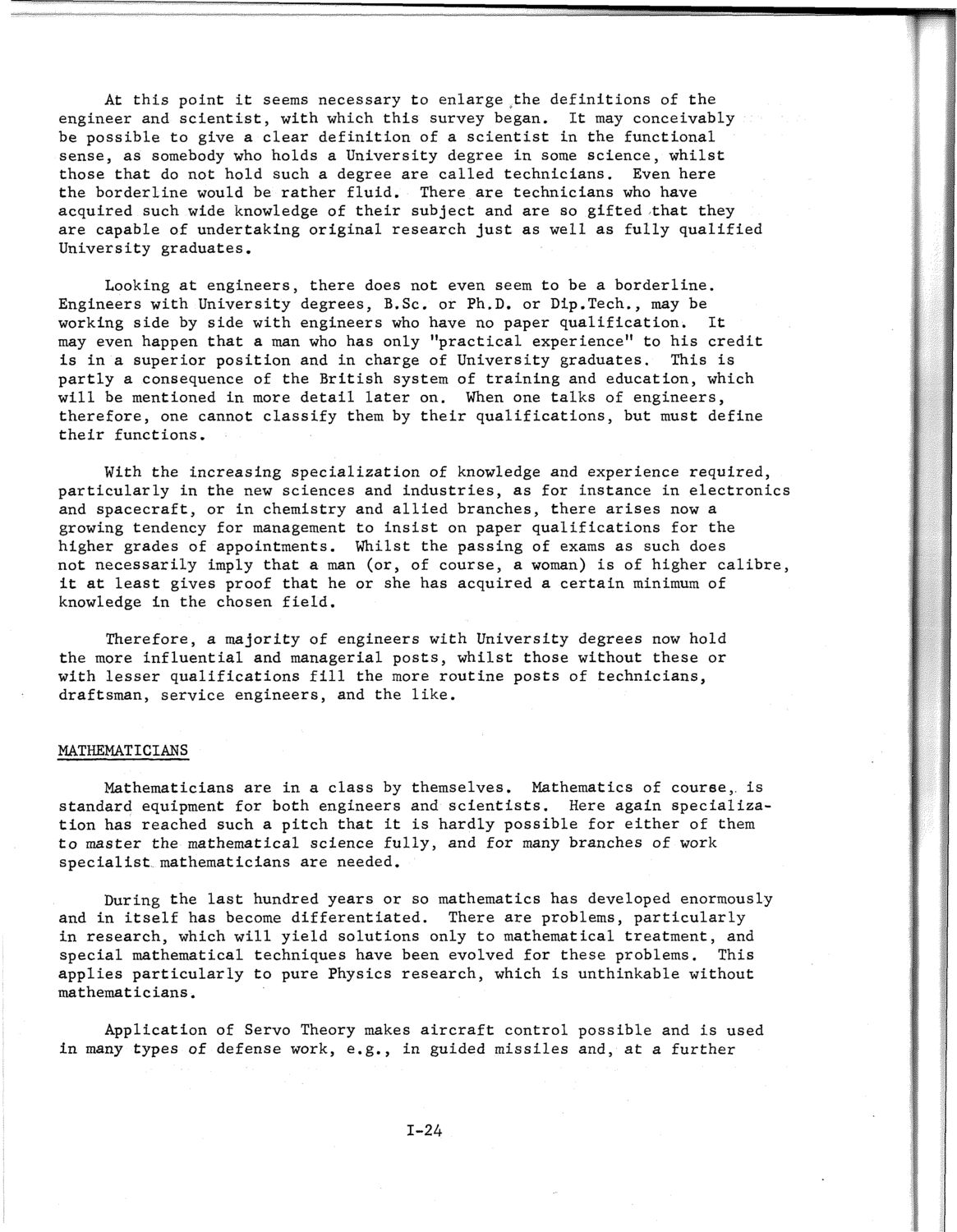| |
| |
Caption: SWE - Proceedings of the First International Conference of Women Engineers and Scientists
This is a reduced-resolution page image for fast online browsing.

EXTRACTED TEXT FROM PAGE:
At this point it seems necessary to enlarge the definitions of the engineer and scientist, with which this survey began. It may conceivably be possible to give a clear definition of a scientist in the functional sense, as somebody who holds a University degree in some science, whilst those that do not hold such a degree are called technicians. Even here the borderline would be rather fluid. There are technicians who have acquired such wide knowledge of their subject and are so gifted -that they are capable of undertaking original research just as well as fully qualified University graduates. Looking at engineers, there does not even seem to be a borderline. Engineers with University degrees, B.Sc. or Ph.D. or Dip.Tech., may be working side by side with engineers who have no paper qualification. It may even happen that a man who has only "practical experience" to his credit is in a superior position and in charge of University graduates. This is partly a consequence of the British system of training and education, which will be mentioned in more detail later on. When one talks of engineers, therefore, one cannot classify them by their qualifications, but must define their functions. With the increasing specialization of knowledge and experience required, particularly in the new sciences and industries, as for instance in electronics and spacecraft, or in chemistry and allied branches, there arises now a growing tendency for management to insist on paper qualifications for the higher grades of appointments. Whilst the passing of exams as such does not necessarily imply that a man (or, of course, a woman) is of higher calibre, it at least gives proof that he or she has acquired a certain minimum of knowledge in the chosen field. Therefore, a majority of engineers with University degrees now hold the more influential and managerial posts, whilst those without these or with lesser qualifications fill the more routine posts of technicians, draftsman, service engineers, and the like. MATHEMATICIANS Mathematicians are in a class by themselves. Mathematics of course,, is standard equipment for both engineers and scientists. Here again specialization has reached such a pitch that it is hardly possible for either of them to master the mathematical science fully, and for many branches of work specialist mathematicians are needed. During the last hundred years or so mathematics has developed enormously and in itself has become differentiated. There are problems, particularly in research, which will yield solutions only to mathematical treatment, and special mathematical techniques have been evolved for these problems. This applies particularly to pure Physics research, which is unthinkable without mathematicians. Application of Servo Theory makes aircraft control possible and is used in many types of defense work, e.g., in guided missiles and, at a further 1-24
| |